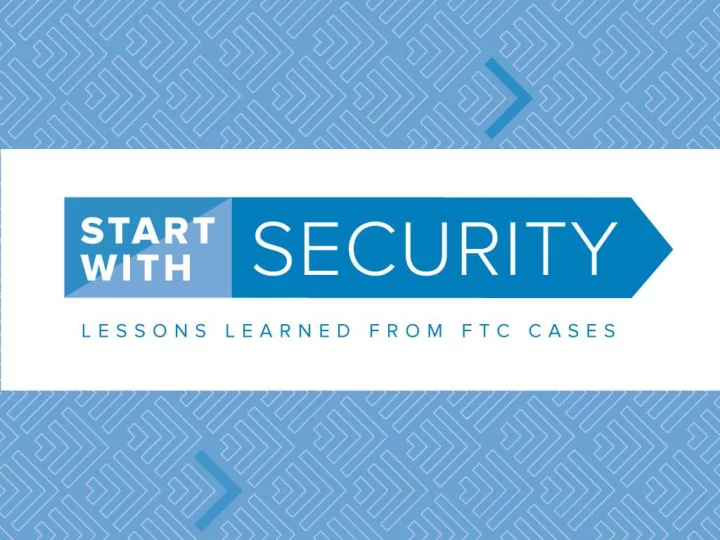

Don’t collect personal information you don’t need. Hold on to information only as long as you have a legitimate business need. Don’t use personal information when it’s not necessary.
Restrict access to sensitive data. Limit administrative access.
Insist on complex and unique passwords. Store passwords securely. Guard against brute force attacks. Protect against authentication bypass.
Keep sensitive information secure throughout its lifecycle. Use industry-tested and accepted methods. Ensure proper configuration.
Segment your network. Monitor activity on your network.
Ensure endpoint security. Put sensible access limits in place.
Train your engineers in secure coding. Follow platform guidelines for security. Verify that privacy and security features work. Test for common vulnerabilities.
Put it in writing. Verify compliance.
Update and patch third-party software. Heed credible security warnings and move quickly to fix them.
Securely store sensitive files. Protect devices that process personal information. Keep safety standards in place when data is en route. Dispose of sensitive data securely.
ftc.gov/datasecurity
business.ftc.gov
business.ftc.gov
business.ftc.gov
business.ftc.gov
business.ftc.gov
business.ftc.gov
business.ftc.gov
business.ftc.gov
bulkorder.ftc.gov
youremail@ftc.gov
Recommend
More recommend